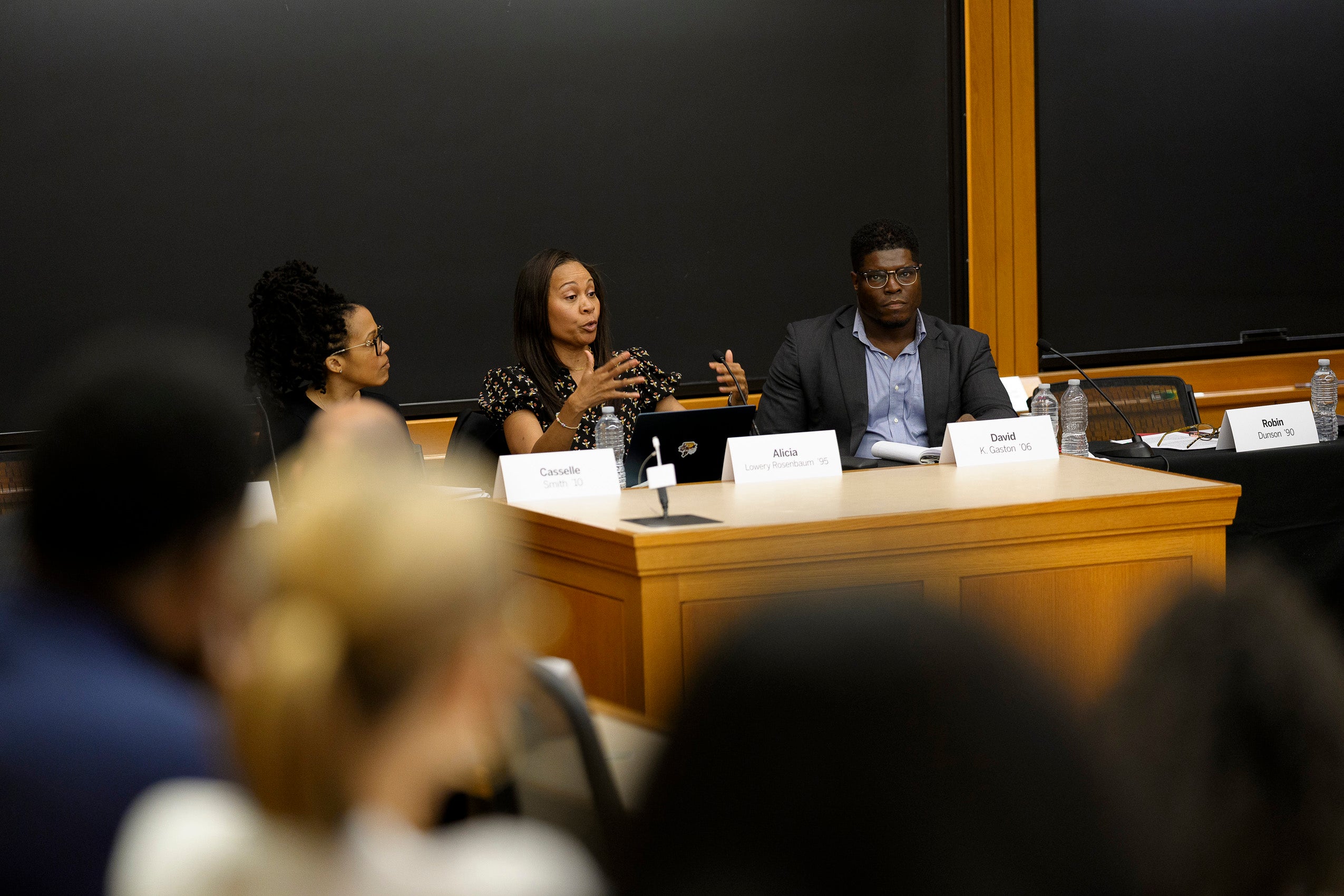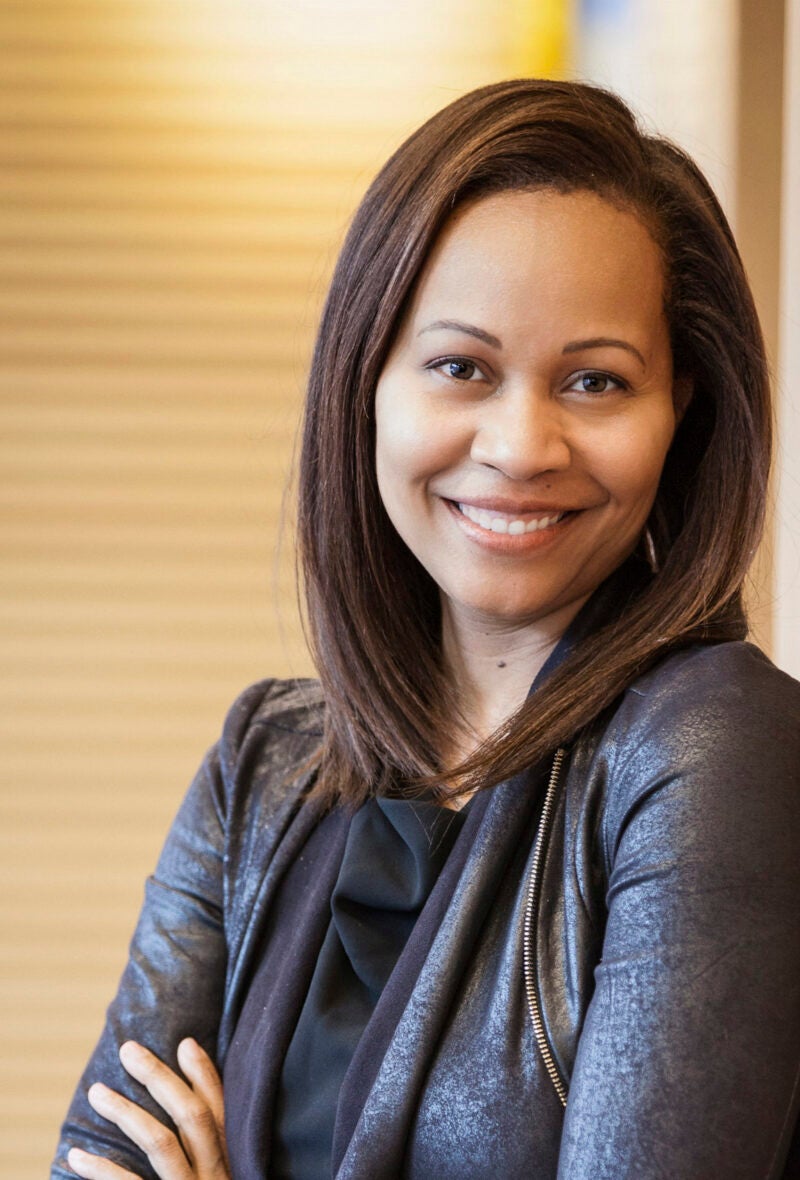As a vice president and associate general counsel at Salesforce, the business software giant, Alicia Lowery Rosenbaum ’95 is focused primarily on issues concerning data safety and cybersecurity — fast-paced, ever-evolving threats that put her skills to the test almost daily. “I’m passionate about the mission to protect data,” she says. “We have a lot of information out there about us. Who has access to it? How is it being used?”
Before coming to Salesforce in 2019, Rosenbaum worked at Microsoft for 11 years, joining the company as cloud computing was becoming more prevalent. It was good timing, she says. “If you think about it from a legal perspective, proximity and control are very important to the liability structure — so what does it mean from a risk perspective to introduce a third party to care for your data? Our value proposition was to heavily invest in becoming experts and gain customer trust.”
That experience dovetails with her current role at Salesforce, where Rosenbaum works with her legal team and with engineers to increase transparency and trust around data access. “We build for safe and protected data, routing, and storage, but there are people — we call them the bad guys — who are incentivized by money or notoriety to break into that chain. Staying ahead of people who are very focused on finding a weakness is like fighting an ongoing war.”
“I like these big tech transitions. It’s exciting and it’s hard.”
The nitty-gritty of it suits Rosenbaum. “I grew up just outside Detroit when it was still a center of car manufacturing, so I was surrounded by engineers,” she says. “I’ve always loved the process of picking things apart and putting them back together. That’s a big part of my job now — understanding how something is built to analyze what went wrong and determine liability and responsibility. I’m surrounded by smart people every day and I’m constantly learning, which is very similar to the experience I had at HLS.”
When her father died last year, Rosenbaum reflected on the gifts he’d given her. An ROTC student while in college, he’d joined the Army after graduation, early in the military’s desegregation efforts.
“He taught me to really lean into finding human connection,” Rosenbaum says. “Having that interpersonal adaptability was something I got from him, because he was often the only African American officer at his post.” Discipline was another trait he passed along: “So much of what I do and have done in roles throughout my career has been pretty intense and stressful — so having a framework for how to work under fire has been very helpful.”

From an early age, Rosenbaum wanted to be a lawyer (or a ballerina). “I’m not sure I had a sense of what lawyers did, but I did understand the fairness aspect and social justice impact, which really attracted me,” she says. She majored in political science and philosophy at the University of Michigan, where “the types of problems lawyers tackle tickled my brain — logic problems and sequentially applying a framework to come up with the best, least risky, most equitable answer while living in that space of ambiguity and messiness.”
When she arrived at Harvard Law School, Rosenbaum recalls, she was initially overwhelmed and intimidated by the “sheer brain power” of the students around her before realizing how much she could learn from her classmates, some of whom had deep expertise in unfamiliar areas. “I use that same approach in how I build and leverage teams today,” she says. “The diversity of thought around you is the magic sauce.” Learning how to approach a problem with “passion and dispassion” was another transformative experience: “Leading with emotion when discussing an intense topic only gets you so far. Through their example, the professors taught the discipline that unlocks analysis instead of response, even if it was sometimes hard. I remember being in a criminal law class and wondering how you can look dispassionately at disparate impact in sentencing, for example. But you need to disengage and figure out what to do about it. If you’re just mired in how you feel, you’ll never get there.”
Looking ahead, Rosenbaum says she’s glad to be working at Salesforce in the early days of artificial intelligence. “I like these big tech transitions. It’s exciting and it’s hard. We’re building the plane as we fly it — figuring out what AI is, how it works, how to use it. It’s a huge, stimulating problem.”
In other words, it’s just the sort of challenge that drew Rosenbaum to law in the first place and is likely to keep her engaged for years to come.
